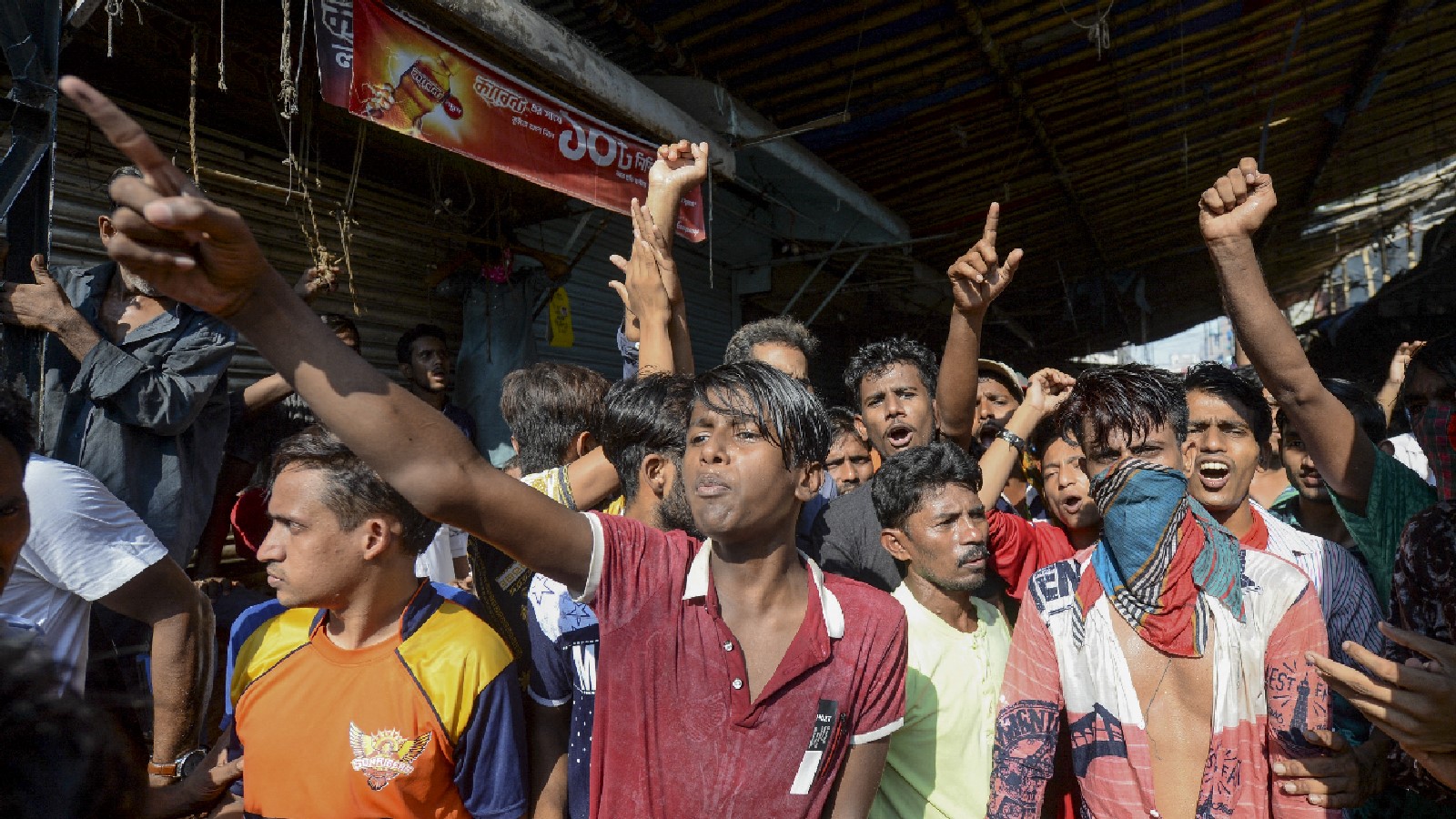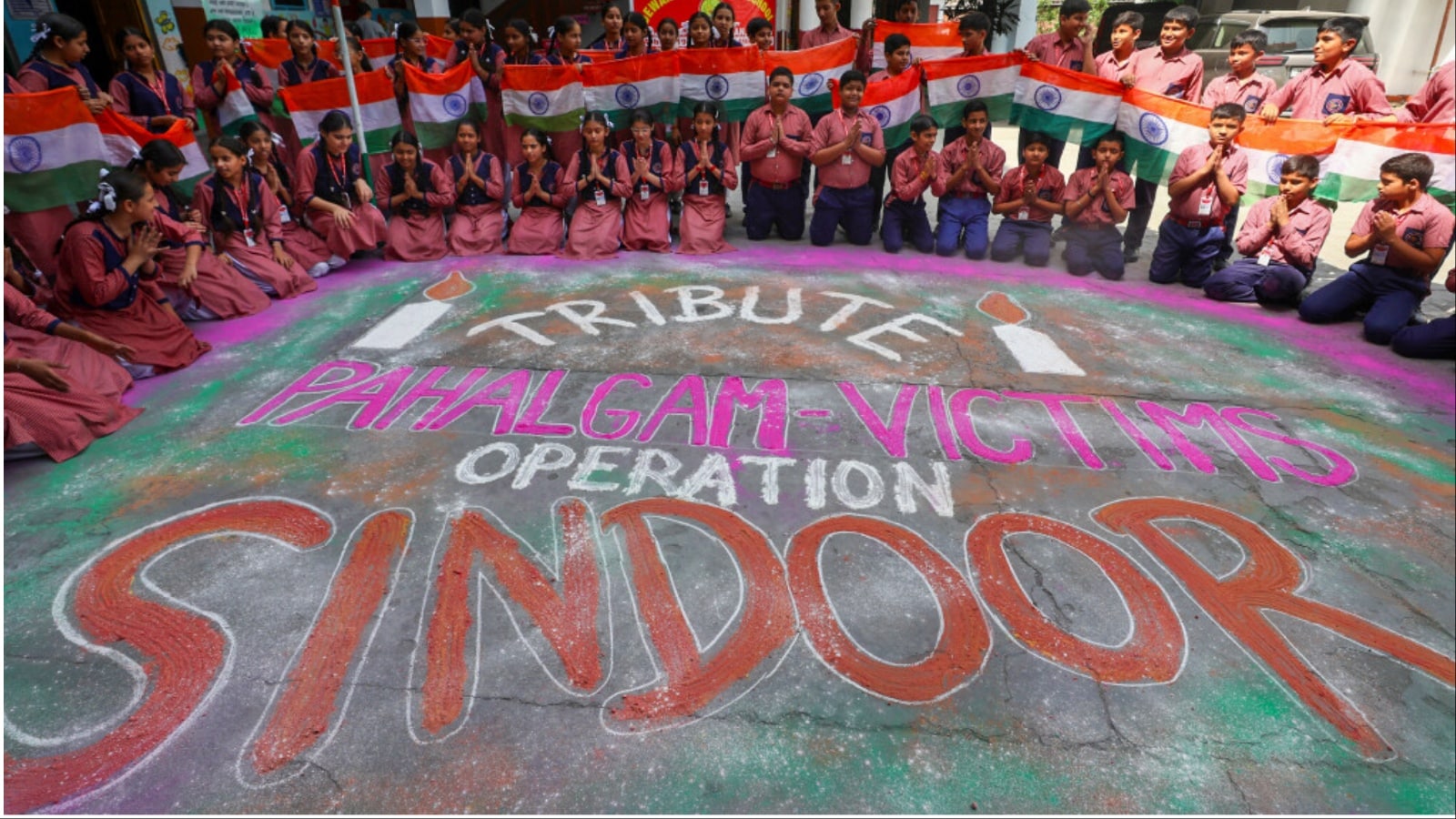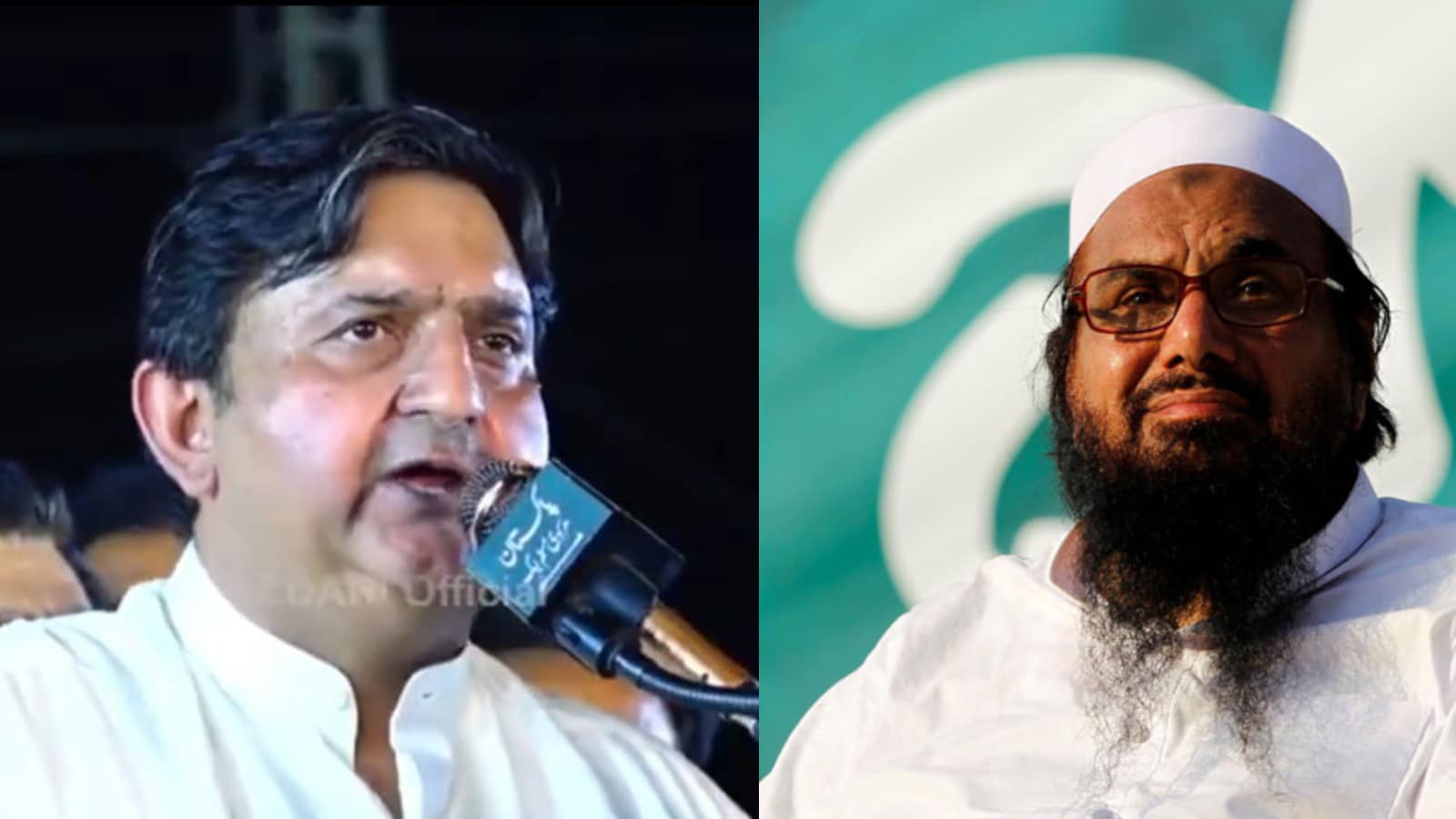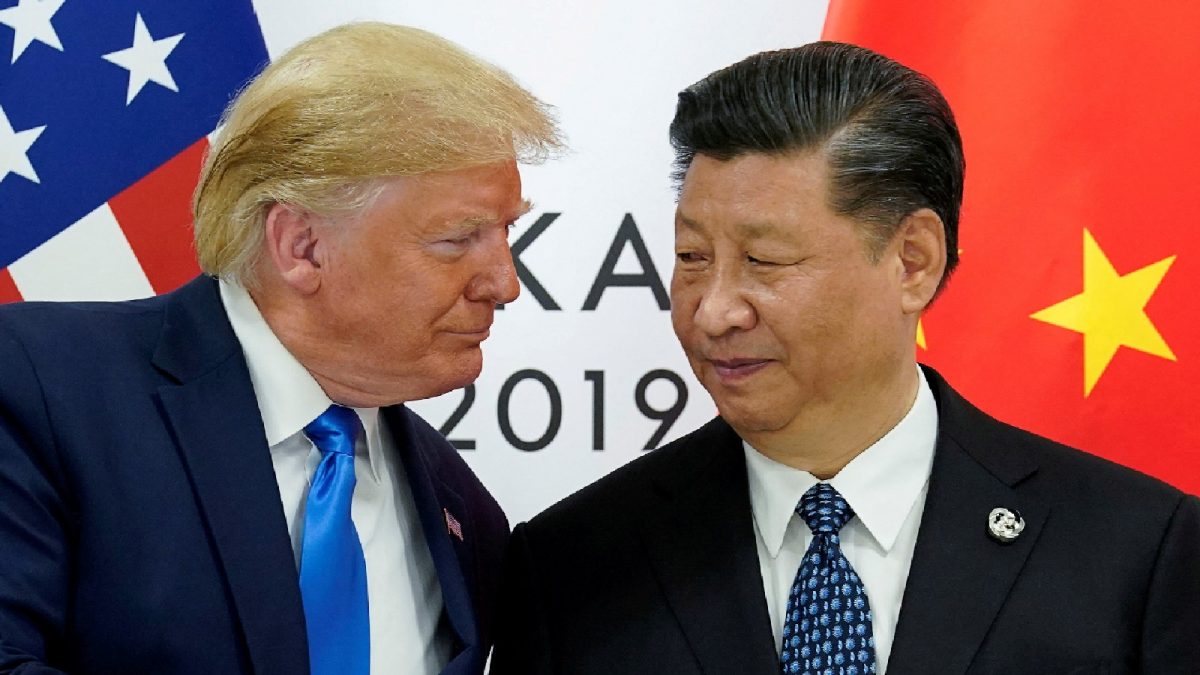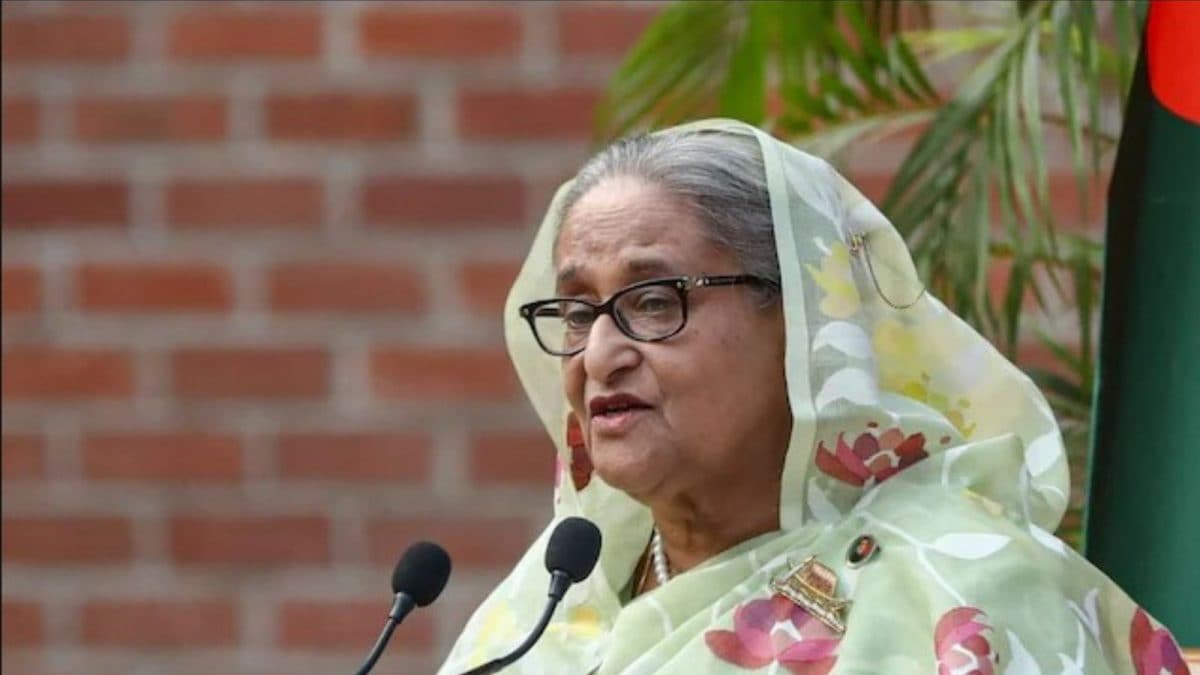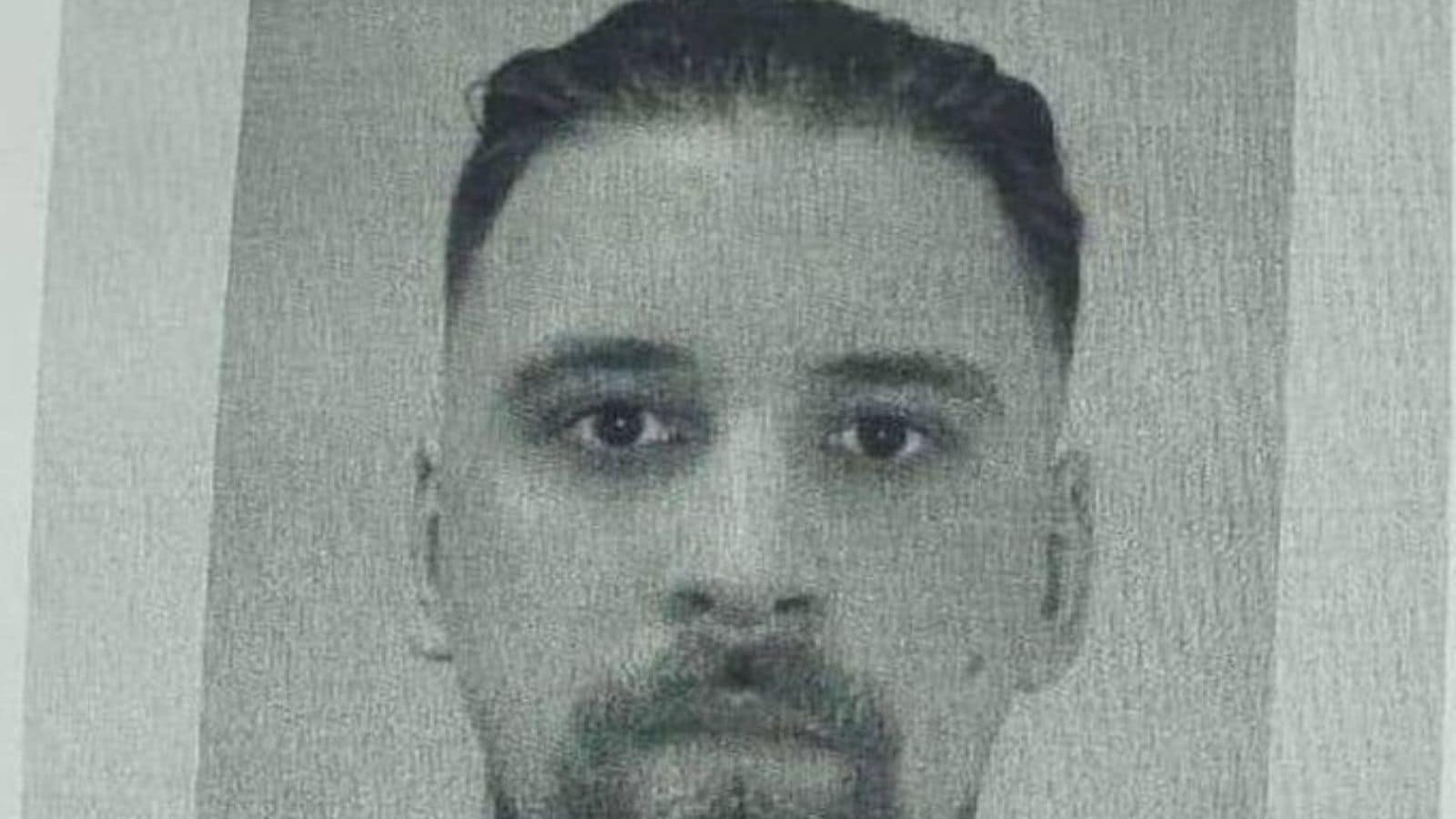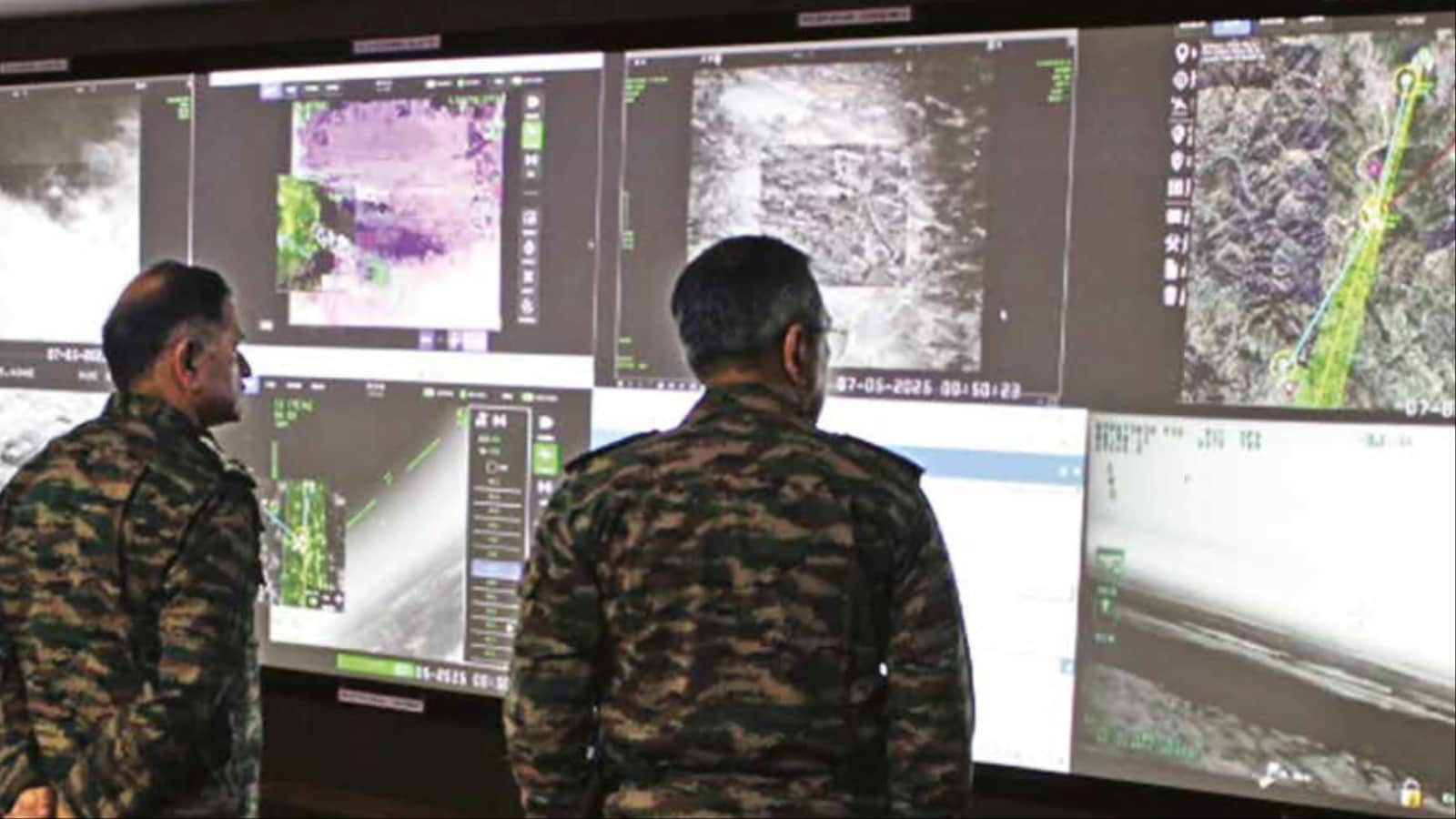Dramatic lead change, but race still too close to call – what we know so far
The populist-right opposition candidate Karol Nawrocki has been given a narrow lead in the Polish presidential race after an updated late exit poll commissioned by the country’s three leading broadcasters unexpectedly put him ahead of the pro-European Warsaw mayor, Rafał Trzaskowski.
The late poll – taking into account some first official results – has Nawrocki ahead at 50.7% to Trzaskowski’s 49.3%.
In an earlier exit poll, Trzaskowski led by 50.3% to 49.7%.
The results continue to be within the margin of error for the poll, as the race remains too close to call.
Further late late poll numbers are expected between midnight and 1am local time (11pm to midnight BST).
Key events Show key events only Please turn on JavaScript to use this feature
Foreign policy scenario in case of Nawrocki's win

Jon Henley
And here are the relevant paragraphs from Jon Henley’s foreign policy analysis published this weekend:
“A Nawrocki victory would put the stalemate that has existed between government and president since 2023 on a much more permanent footing,” said Nicolai von Ondarza of the German Institute for and Security Affairs (SWP).
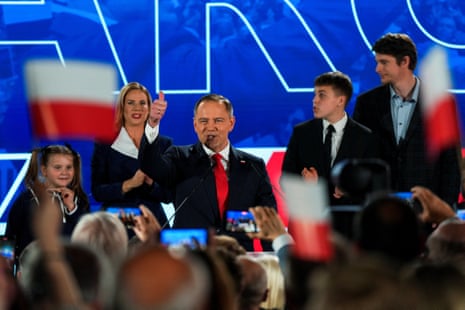
“It would change the political calculation within Poland itself – and it would refocus European attention on the unfulfilled promises on rule-of-law that are actually the basis of Poland’s renewed relationship with the EU.”
While EU leaders would be unlikely to turn the screw on Tusk (“The last thing they would want to do is weaken him further,” Von Ondarza said), the prime minister’s influence in key decisions, such as the bloc’s future budget, would inevitably wane.
Nawrocki would back the PiS government’s approach of “building alternative EU alliances”, for example with Hungary and Slovakia, “as the most effective way of advancing Poland’s interests”, said Aleks Szczerbiak of the University of Sussex.
Szczerbiak added that Nawrocki would certainly also prioritise maintaining close ties with the US, which he has said is Poland’s only credible security guarantor, and “oppose the development of a European defence capability outside Nato structures”.
Piotr Buras of the European Council on Foreign Relations thinktank agreed: “Nawrocki has been heavily critical of Tusk’s backing for Europe’s strategic security shift away from reliance on the US. He is a Trumpist; he was invited to the White House. There will be a constant tension there, around security policy.”
Tensions between Tusk and Nawrocki would be exacerbated by splits that already exist within the prime minister’s disparate coalition of centrists, progressive leftists and conservatives, with policy over Ukraine already a victim of political divisions.
There is broad consensus in Poland on the need to continue military aid to Ukraine. But Tusk himself has had to acknowledge public concern around the coalition of the willing, saying Poland would not participate, and over Ukraine’s EU membership.
Nawrocki has gone further, tapping into Polish anti-Ukrainian sentiment over refugees and strongly criticising Kyiv and its EU and Nato accession plans.
Former Polish prime minister Mateusz Morawiecki, of the Law and Justice party, claimed in an earlier interview with Poland’s public broadcaster TVP that even “10-15%” of exit poll respondents declined to tell pollsters who they voted for.
If confirmed, this could offer a one potential explanation as to the reason behind the massive swing in the late poll, as that’s when the earlier numbers got adjusted after looking at the actual early results.
I’m sure we will hear more about this tonight (and in the coming days).
Domestic scenario in case of Nawrocki’s win
A quick reminder why does it all matter, from my curtain raiser before today’s vote:
While the role of the Polish president is largely ceremonial, it carries some influence over foreign and defence policy and a critical power to veto new legislation. This can only be overturned with a 60% majority in parliament, which the current government, led by Donald Tusk, does not have.
At stake is whether Tusk’s government will be able to make progress on its electoral promises on the rule of law and social issues, including abortion and LGBTQ rights, after 18 months of difficult cohabitation with the opposition president, Andrzej Duda.
A Nawrocki win would prolong the deadlock, making it difficult if not impossible for the government to pass any big reforms before the 2027 parliamentary election.
“Tusk knows the stakes and that if Nawrocki wins, he’s got a lame-duck administration for the next couple of years. And it will be worse than with Duda as Nawrocki will come in fresh, with a new mandate from what effectively turned into a referendum on the government,” Prof Aleks Szczerbiak, who teaches east and central European politics at the University of Sussex, said.
Dramatic lead change, but race still too close to call – what we know so far
The populist-right opposition candidate Karol Nawrocki has been given a narrow lead in the Polish presidential race after an updated late exit poll commissioned by the country’s three leading broadcasters unexpectedly put him ahead of the pro-European Warsaw mayor, Rafał Trzaskowski.
The late poll – taking into account some first official results – has Nawrocki ahead at 50.7% to Trzaskowski’s 49.3%.
In an earlier exit poll, Trzaskowski led by 50.3% to 49.7%.
The results continue to be within the margin of error for the poll, as the race remains too close to call.
Further late late poll numbers are expected between midnight and 1am local time (11pm to midnight BST).

Jakub Krupa
I told you it was going to be a long night.
If late poll holds, we will work to bring down Tusk’s government, senior PiS MP says
If you’re still digesting what this could mean for Poland if these late poll numbers get confirmed, let me help you.
A senior PiS lawmaker and former education minister, Przemysław Czarnek, just told TV Republika:
“If these polls hold and Karol Nawrocki becomes president-elect tomorrow morning … I can reassure you that maybe not starting tomorrow, but from Tuesday, we will begin very energetic work in order to give the Polish people another gift – the end of Tusk’s government.”
He suggested the Law and Justice party would approach some government MPs to offer them “a longer perspective of serving Poland over the next years” in a hope to get them to defect and form a new rightwing coalition in the parliament.
Late poll plot twist – snap analysis
This remains still too close to call, but that’s a big, big plot twist.
Just to help you understand what’s going on: the late poll is essentially the exit poll, updated with partial results from 50% of polling stations where they conducted the poll.
Some PO lawmakers appearing on TV over the last hour or so kind of implied that was expected as the first polling stations to report are usually smaller and rural, so naturally PiS-leaning, but it will all change again when the larger polling stations report their numbers.
Having said that, that’s a big swing.
We will get another update – a new late, late poll – at about 1am, with some results from 90% of the polling stations that they ran the exit poll at.
Late poll: Nawrocki in lead
Plot twist: Karol Nawrocki has now gone into lead in the late poll by Ipsos, as reported by Polsat.
50.7% for Nawrocki, 49.3% for Trzaskowski.
This is still too close to call, mind.
Election postcard from Siekierczyn where single vote decided first round vote

Jakub Krupa
If you’re thinking: oh, it’s close, but just how close could it get?, let me tell you: it can be very, very close.
In the first round vote, two weeks ago, there were four places in Poland where there was only a single vote of difference between the two leading candidates.
Before the second-round vote today, I visited Siekierczyn to speak with voters about their views and their hopes for Poland.
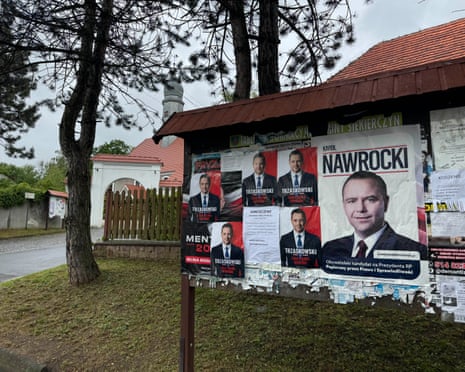
You can catch up with my report here:
The head of Nawrocki’s campaign and a Law and Justice MP, Paweł Szefernaker, has just offered an insight into why their team think this result could be different.
He argues that exit polls historically undervalued conservative candidates and so with such a tiny difference between the candidates here, it’s simply too close to call.
Let’s wait and see then.
Exit poll data – snap analysis

Jakub Krupa
I have looked at the underlying data behind the Ipsos exit poll and it laid bare the extraordinary level of divisions within Polish society.
While women voted for the pro-European centrist Warsaw mayor, Rafał Trzaskowski, by 54% to 46%, men sided with Karol Nawrocki by the same ratio.
When you look at the education levels, Trzaskowski came first among those with a Bachelor’s degree or higher (63% to 37%), but Nawrocki won among all other groups.
And so on. In almost every single category, you have extremely polarising results.
Higher-level executives? Trzaskowski win 65% to 35%. Company owners? Trzaskowski again, by 57% to 43%.
But farmers? 79% to 21% for Nawrocki. Employees? 68% to 32% for Nawrocki.
Finally, in the buildup to the vote, there was a lot of chat about vote transfers from other candidates, particularly the libertarian far-right candidate Sławomir Mentzen who came third in the first round, with 13.47% of the both.
Mentzen hosted both Trzaskowski and Nawrocki for one-on-one interviews on his YouTube channel, but it seems that his electorate had a clear preference for Nawrocki, siding with him by 88% to 12%.
The former Polish president Aleksander Kwaśniewski (1995-2005) also strikes a cautious note in his first comments, saying he would urge candidates to wait for the official results as it is too close to call.
He says Poland is more divided than ever, as both leading parties have pursued a polarising agenda for the last two decades.
He says he hopes to see the new president make some gestures to unite the country, with a cross-party office to support him in his function.
First reactions – in pictures

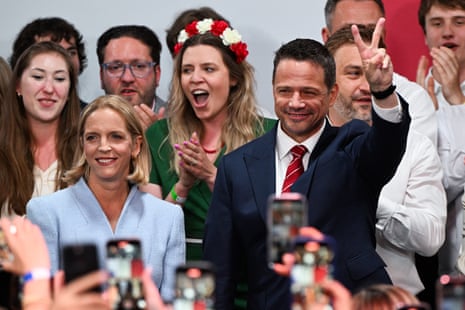
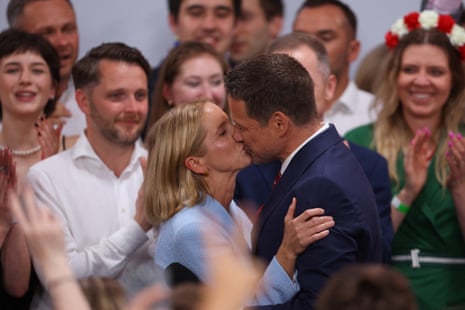
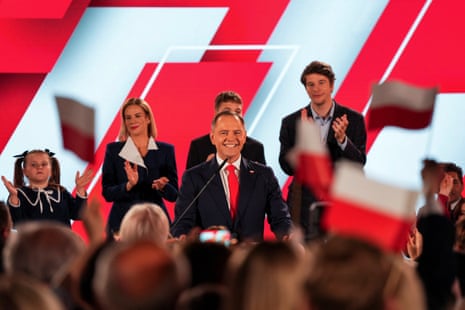
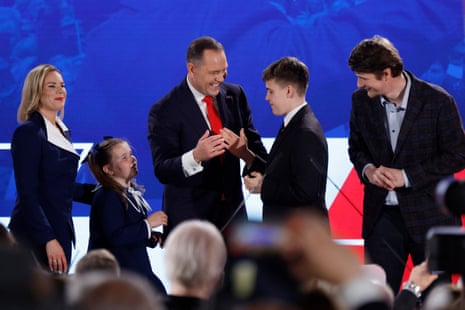
Here is our first story from Warsaw, from Shaun Walker and I if you want to catch up on the basic facts:
A senior Ipsos executive, Joanna Skrzyńska, tells TVN24 that if this projected result remains so close when the late poll drops at 11pm local time, it will in effect remain too close to call.
We may have to wait for the official results tomorrow morning before confidently declaring who has won it, she adds.
Get some snacks, we’re in for a long ride.
Exit poll: 70,000-100,000 votes’ difference between candidates
If you’re wondering just how tight this election is, the two exit polls say it is between 70,000 and 100,000 votes.
In a country of 37 million, with 28.3 million eligible voters.
Wow.
Before the exit polls dropped, I told you about all the speculations on turnout.
For what it’s worth, the Ipsos exit poll says it will end up being 72.8%, which would be the highest turnout for a presidential election ever (beating 68.23% in 1995).

 1 day ago
1 day ago




